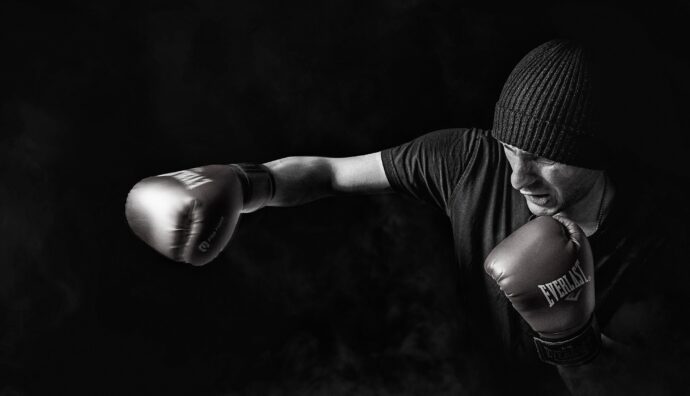Over the last two decades, every year a world-famous teacher held a seminar in our town. For the event, practitioners arrived from many countries. One of these gave us the gift of his patience, dedicating himself to us, who came from different technical backgrounds, hence allowing us to decode teacher’s didactic proposal.
Having become friends over time, during one of these seminars, I confided to him my issue in relating to that kind of practitioner who seems insensitive. That one that, to be clear, delivers the technique by hitting hard (with a bare hand or with a weapon) and/or exasperating the joint leverage.
I remember his answer perfectly, given through an anecdote:
“It happened to me last month with a guy. The first time I told him: ‘You are hurting me.’
The second: ‘You are hurting me’
The third: ‘You’re are hurting yourself’.
So when he stepped in to hurt me, I went in.”
To tell the truth, having to rely onto “physical” imposition due to the failure of verbal communication, is something that always disgusted me. I have a very vivid memory of the atmosphere that was felt many years ago in the Karate course I attended. Other times, not necessarily unforgettable.
Certainly other sensitivities. Or rather, other insensitivities.
Developing empathy was certainly not the priority of the training, which rather had to be technical, exhausting and impact-oriented. Verbal communication, when it existed, was monosyllabic. Both between the sensei and us, and between us.
This, in those years at least, was true for all disciplines. The Aikido classes in parallel with our training worthily represented the concept of heavy carpentry, like our kumite.
Exactly as happens in nature, the evolutionary push modifies the conditions of practice. However, it is not uncommon to still find someone -not necessarily middle-aged – for whom, quoting Philippe Gouttard Sensei:
“Blood is scent of war“. (Read it with a French/Japanese tone)
In its most widespread version, it is a living nostalgic memory. Of an individual who walked on many tatamis since he was young, growing up and surviving both clashes and incomplete and confusing teaching.
In short, that kind of person who, at every seminar, comes and starts showing you the technique that he/she learned from who knows which JuJeetKaraJuAikiller teacher from Moroon Ryu in the past.
The secret here is to benefit from having grown up (also) among your grandparents’ friends and understanding that basically you just need to resist those fifty minutes of unsolicited anecdotes. If they push hard the technique and you point it out to them, they apologize and stop. Then maybe they start again but they’re not bad guys.
Yet what to do with the others? Especially with those who don’t even have the benefit of the doubt of age?
You tell him they are hurting you and it’s like you’re talking to the wall.
When it’s your turn you set the technique without hurting them but the technical-physical language seems to be an off channel.
What to do? Getting hurt? Stoping the exercise and calling yourself out?
I have/we have tried them all.
Sometimes we called Sensei’s attention to ask him/her to evaluate our exchange. What happened was that this brought the practice back into the channels of respect. But it also happened that the Sensei got so angry that he really hurt the “lost sheep on the tatami”.
Sometimes we raised the verbal tone, actually making the situation worse.
On a few occasions we have used the “You are hurtig me, you are hurting yourself” method.
In any case it was not a good moment.
Maybe who knows, when there are no conditions for a relationship, even if confined within the framework of a technique, insisting is simply stupid. All the better it would be to simply escape a dysfunctional game. Forcing the other to do harm – unwillingly or not – in order to enter into a relationship is a decidedly twisted mechanism.
In this “letting go”, perhaps there is more Aikido than what there is in high-paced, high-impact activities. There are, in the Dojo and outside, people who arrive, and simply pass through you, as if you were transparent. You greet’em, you smile and simply it’s like you were not there.
There are, on and off the tatami, people who, without a reason, enter into conflict and seem to want to communicate only with the language of pain inflicted and suffered.
Well, all these situations are probably simply to be let go. Because practice, like life, demands everything and squeezes you. It smashes you to the ground and demands that you get back up, again and again and again.
It can also occasionally bring you some pain.
But if it begins to demand suffering; if the practice is an endurance contest to see who endures the most pain, if relationships become a challenge to who ignores the other the most, then there is something to correct or, slowly and inexorably, the practice itself will disintegrate the individual.
Disclaimer: Picture by Pixabay

